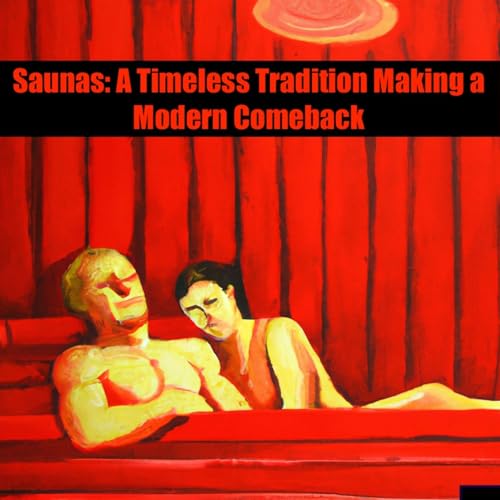Steaming Through the Ages: A History of Saunas With origins dating back thousands of years, saunas are one of humanity’s oldest bathing traditions. Today, stepping into a wooden sauna feels like entering a peaceful refuge from the stresses of modern life. But saunas have an extensive history rooted in ceremony, healing, social connection, and the very survival of ancient cultures living in extreme cold climates. Ancient Beginnings While the first recorded saunas date back to around 500-300 BC in Russia and the Baltic regions of Eastern Europe, historians believe sauna-like bathing habits likely emerged much earlier. Primitive underground pits heated by burning stones provided bathing sanctuaries for ancient tribes residing in Siberia, the Urals, and Scandinavian territories thousands of years ago. Archeologists have discovered ancient sauna structures uncovered in burial mounds containing charred rocks dating back over 2000 years. In these bitterly cold climates, heating rocks to warm dwellings and cleanse bodies served both practical and spiritual means. Heating elements separated sacred sauna spaces from living areas for conducting birth rituals, preparing the deceased before burial, and other ceremonial events. Frequent sauna bathing was also necessary for simple survival – to reduce the spread of diseases, handle harsh winters, and cleanse when bathing in icy lakes proved impossible. For many northern hunters and gatherers, the sauna was so central to a tribe’s ability to endure brutal winters that it became enshrined as a sacred place worthy of offerings and worship. There are records of reindeer antlers and animal bones found in ancient archeological sauna sites, likely from sacrifices made to sauna spirits. Finnish mythology even tells of special forest spirits and deities believed to protect families who bathed and tended to their saunas properly. Saunas Spread Through Trade & War One of the earliest written accounts of primitive saunas comes from Greece in the 5th century BC. Greek philosopher Herodotus wrote of nomadic tribes in the Eurasian steppes using felt tents with heated rock flooring to produce steam for bathing. As contact increased between cultures from Roman expansion to the spice-trade routes of the Middle Ages, saunas began mushrooming across new territories. Returning crusaders and war veterans brought home descriptions of Turkish and Russian bathhouses known as “hammams” featuring aromatherapy, steam rooms, and ancient spa treatments. Trade and Viking settlements continued dispersing sauna designs, construction techniques, and bathing rituals across northern regions. By the 17th and 18th centuries, saunas had become ingrained across Scandinavia, the Baltic States, Eastern Europe and Russia as a ubiquitous cultural practice tied to national identity. Modern Revival While saunas remained popular across northern Europe into the 20th century, their utility started fading as homes and plumbing modernized. By the middle of the 1900s, many view saunas as outdated relics from rural life gradually vanishing from urban areas. But a growing nostalgia for cultural traditions – coupled with new research into myriad health benefits from thermal bathing – soon spurred a nationwide revival of public saunas across Nordic regions and Germany. Meanwhile in North America, a handful of Finnish and German immigrants had been introducing backyard saunas in local communities starting around the 1920s. But these remained rare oddities unfamiliar to most North Americans until a postwar craze for recreational saunas suddenly erupted in the 1950s – spearheaded by a booming middle-class awash with discretionary income seeking leisure and adventure. A 1957 Life Magazine feature story thrust saunas into the mainstream spotlight after detailing President Eisenhower’s enjoyment of Finnish sauna bathing for improved circulation. High-profile celebrities, professional athletes, and even doctors began endorsing saunas as pathways to boosting cardiovascular health, muscle recovery, stress relief, and mental well-being. Backyard recreational saunas started appearing in many suburban neighborhoods as the wellness movement took off through the 1970s and 80s. The Global Sauna Today with greater demand for self-care routines and preventative wellness, saunas in private homes and fitness clubs have exploded in popularity worldwide. Modern athletic training programs now regularly incorporate sauna sessions to help athletes heal faster between competitions. Even industries like tech campuses and white-collar workspaces have started integrating infrared saunas as worker perks to stimulate productivity. While the designs and heating elements have modernized across various global cultures, the elemental experience of gathering with others for collective sweating, healing, and community remains surprisingly close to ancient indigenous traditions. More than just a physiological experience, saunas retain their...



